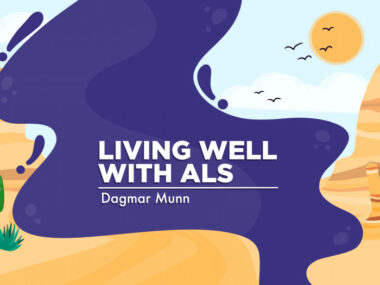Canadian initiative to advance AI tech to better diagnose ALS
New program will aim to help clinicians detect early signs of ALS
Written by |

A new Canadian initiative seeks to advance development of an artificial intelligence (AI) program aimed at helping healthcare professionals detect possible signs of amyotrophic lateral sclerosis (ALS) in the disease’s early stages.
The AI program is crafted to analyze de-identified electronic medical records (EMRs) and detect individuals who should be tested for ALS or referred to a specialty center. It employs a clinical algorithm — called MNd-5 and using real-world data — that screens EMRs to help physicians spot patients for whom investigations for the neurodegenerative disorder may be appropriate.
The initiative, Process for Progress in ALS: An EMR-Based Practice Initiative, is a collaboration of Mitsubishi Tanabe Pharma Canada (MTP-CA) and a trio of experts. These scientists, all members of the steering committee, are Angela Genge, MD, executive director of the ALS Centre of Excellence at The Neuro, in Montreal; Amer A. Ghavanini, PhD, division head of neurology at Trillium Health Partners in Mississauga, Canada; and Amanda Fiander, a neurologist at Maritime Neurology, in Nova Scotia.
“Early diagnosis and treatment of ALS can improve outcomes, but the disease can be difficult to diagnose in its early stages. The more time that passes before diagnosis, the less opportunities exist for disease-management for someone living with ALS,” Genge, said in a MTP-CA press release.
“Process for Progress in ALS is a unique advancement in AI medical technology which can help HCPs [healthcare providers] identify patients who present multiple warning signs for ALS so they can receive expedited follow-ups, diagnoses, and treatment if needed,” Genge added.
Better tech needed to correctly ID early signs of ALS
While early diagnosis and treatment can improve outcomes, making such a determination in ALS often is challenging because the early signs and symptoms of the progressive disease can be subtle, and no test provides a definitive diagnosis.
In Canada, such diagnoses take an average of 21 months, and come at a time when most patients are already showing more severe signs of muscle weakness affecting multiple regions of the body.
The new algorithm, developed with the steering committee and deployed using the software platform of Toronto, Canada-based Ensho Health, a digital healthcare company, is intended for use as a clinical-decision support tool.
It prioritizes patients suspected of having ALS for clinical review. It works by comparing characteristics of their health presentations, along with electromyography test results, with a reference population in which ALS or a number of other conditions has been diagnosed or ruled out.
We know that time is of the essence for people living with ALS, and initiatives like Process for Progress in ALS are critical in helping to ensure a timely diagnosis for people impacted by this devastating disease.
“As a participant in the Process for Progress in ALS initiative, I believe it is a significant step forward to assist in our ability to identify ALS symptoms in the early stages and confidently refer people for further testing or to an ALS centre,” said Hamza Jalal, neurologist at Oakville Valley Health and a program participant.
“By intervening in patients’ journeys earlier in the course of their disease, we can provide access to multidisciplinary care, approved therapies or clinical trials that can slow the progression of the disease and enhance the quality of their lives,” Jalal added.
Through integrations with electronic medical record systems, including Accuro, Cerner, Epic, Indivicare, Mediquest, and OscarPro, the screening service is available to about 80% of community neurologists, according to MTP-CA.
“We know that time is of the essence for people living with ALS, and initiatives like Process for Progress in ALS are critical in helping to ensure a timely diagnosis for people impacted by this devastating disease,” said Andy Zylak, president of MTP-CA, adding, “We are proud to support the introduction of this important AI technology as part of our long-standing commitment to leading scientific innovation, collaborating with HCPs, and working tirelessly to meet the needs of the ALS community.”






